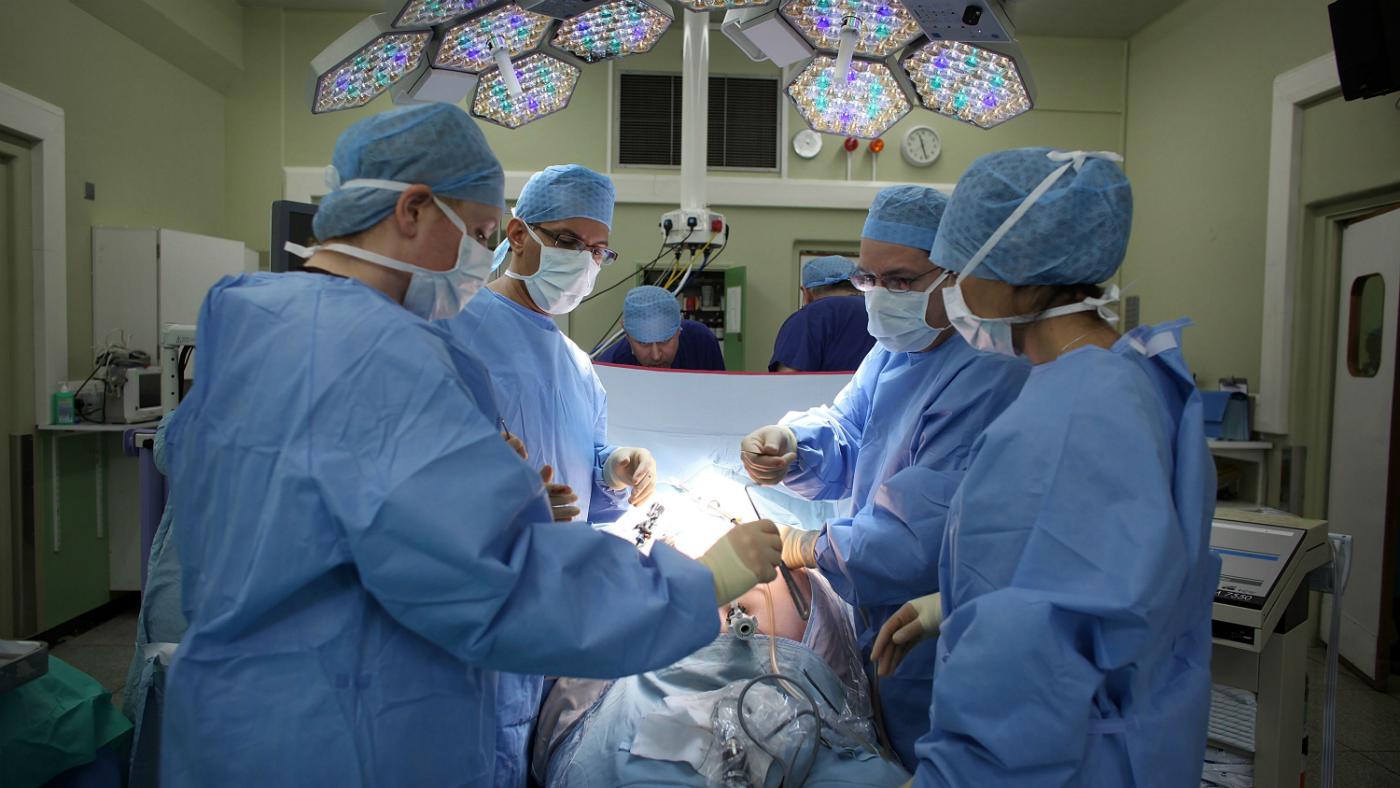Revolutionary new microbead prostate therapy gets NHS green light
Procedure using synthetic beads ‘as effective as invasive surgery’ and has fewer side effects

A free daily email with the biggest news stories of the day – and the best features from TheWeek.com
You are now subscribed
Your newsletter sign-up was successful
A pioneering new treatment for enlarged prostates that could spare thousands of men from undergoing invasive surgery has been given the green light by the NHS.
Up to half of all men aged over 50 suffer an enlarged prostate, which can reduce bladder capacity, causing repeat night-time trips to the toilet, The Times reports.
An estimated 45,000 men in the UK have surgery to treat enlarged prostates every year. However, that figure could be drastically reduced thanks to the new technique, known as prostate artery embolisation (PAE).
The Week
Escape your echo chamber. Get the facts behind the news, plus analysis from multiple perspectives.

Sign up for The Week's Free Newsletters
From our morning news briefing to a weekly Good News Newsletter, get the best of The Week delivered directly to your inbox.
From our morning news briefing to a weekly Good News Newsletter, get the best of The Week delivered directly to your inbox.
The treatment uses tiny synthetic beads to block some of the blood supply to the prostate, causing the troublesome tissue to shrink and die. Doctors pass a small tube into an artery in the groin that can be guided into the small blood vessels of the prostate.
The procedure can be done under local anaesthetic, which means that unlike with conventional prostate surgery, patients can go home shortly afterwards without having to be admitted to hospital, the BBC reports.
According to the National Institute for Health and Care Excellence (Nice), PAE may also have fewer side effects.
Dr Nigel Hacking, who led a study into the effectiveness of the treatment, told The Daily Telegraph that he hoped the new treatment would act as a “bridge” between drugs and surgery, bringing help to tens of thousands of men suffering distressing problems on a daily basis.
A free daily email with the biggest news stories of the day – and the best features from TheWeek.com
Around half of all prostate patients aged over 50 could benefit from the treatment, according to Hacking, a consultant interventional radiologist at University Hospital Southampton.
“By the time you get to the age of 80, around 80% of men will suffer from this, so we are talking about a lot of men,” he added.
-
 What is the endgame in the DHS shutdown?
What is the endgame in the DHS shutdown?Today’s Big Question Democrats want to rein in ICE’s immigration crackdown
-
 ‘Poor time management isn’t just an inconvenience’
‘Poor time management isn’t just an inconvenience’Instant Opinion Opinion, comment and editorials of the day
-
 Bad Bunny’s Super Bowl: A win for unity
Bad Bunny’s Super Bowl: A win for unityFeature The global superstar's halftime show was a celebration for everyone to enjoy
-
 How cybercriminals are hacking into the heart of the US economy
How cybercriminals are hacking into the heart of the US economySpeed Read Ransomware attacks have become a global epidemic, with more than $18.6bn paid in ransoms in 2020
-
 Language-learning apps speak the right lingo for UK subscribers
Language-learning apps speak the right lingo for UK subscribersSpeed Read Locked-down Brits turn to online lessons as a new hobby and way to upskill
-
 Brexit-hobbled Britain ‘still tech powerhouse of Europe’
Brexit-hobbled Britain ‘still tech powerhouse of Europe’Speed Read New research shows that UK start-ups have won more funding than France and Germany combined over past year
-
 Playing Cupid during Covid: Tinder reveals Britain’s top chat-up lines of the year
Playing Cupid during Covid: Tinder reveals Britain’s top chat-up lines of the yearSpeed Read Prince Harry, Meghan Markle and Dominic Cummings among most talked-about celebs on the dating app
-
 Brits sending one less email a day would cut carbon emissions by 16,000 tonnes
Brits sending one less email a day would cut carbon emissions by 16,000 tonnesSpeed Read UK research suggests unnecessary online chatter increases climate change
-
 Reach for the Moon: Nokia and Nasa to build 4G lunar network
Reach for the Moon: Nokia and Nasa to build 4G lunar networkSpeed Read Deal is part of the US space agency’s plan to establish human settlements on the lunar surface
-
 iPhone 12 launch: what we learned from the Apple ‘Hi, Speed’ event
iPhone 12 launch: what we learned from the Apple ‘Hi, Speed’ eventSpeed Read Tech giant unveils new 5G smartphone line-up
-
 Russian agency behind US election meddling ‘created fake left-wing news site’
Russian agency behind US election meddling ‘created fake left-wing news site’Speed Read Facebook says real reporters were hired by fake editors to write about US corruption